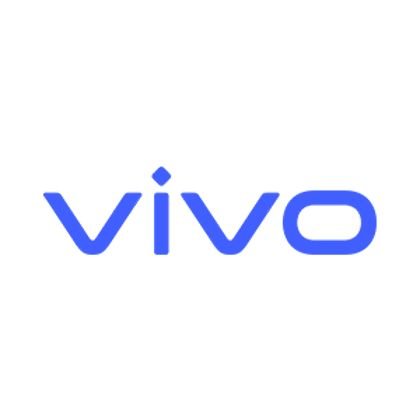
Quantum computing is poised to revolutionize industries by solving complex problems that are currently unsolvable with classical computers. Startups in this space are pushing the boundaries of what’s possible by developing new quantum hardware, software, and algorithms. Here are some of the top quantum computing startups to watch in 2024, each making significant strides in the field.
1. IonQ
Headquarters: College Park, Maryland, USA
Founded: 2015
Why IonQ?
IonQ is a leader in the field of quantum computing, known for developing quantum computers based on trapped ion technology. Their approach uses individual atoms as qubits, which are manipulated using lasers to perform computations. IonQ’s quantum computers are considered among the most advanced in terms of qubit fidelity and gate performance.
Key Innovations:
- Trapped Ion Technology: Offers high-fidelity qubits and longer coherence times, making them suitable for complex quantum algorithms.
- Quantum Cloud Services: Provides access to its quantum computers via major cloud platforms like AWS, Microsoft Azure, and Google Cloud, making it easier for developers to build and run quantum applications.
- Scalable Architecture: Focuses on building scalable quantum computers that can operate at room temperature, reducing the infrastructure costs associated with quantum computing.
Why It Matters: IonQ’s trapped ion approach is a promising path toward building scalable and reliable quantum computers, which could accelerate the timeline for achieving quantum advantage.
2. Rigetti Computing
Headquarters: Berkeley, California, USA
Founded: 2013
Why Rigetti Computing?
Rigetti Computing is a full-stack quantum computing startup that integrates quantum hardware, software, and cloud services. The company has developed its quantum computers using superconducting qubits, which are considered one of the most promising technologies for building scalable quantum systems.
Key Innovations:
- Quantum Cloud Services: Provides access to quantum computers through its cloud platform, Forest, enabling developers to build, test, and run quantum algorithms.
- Hybrid Quantum-Classical Computing: Combines classical and quantum computing resources to solve complex problems more efficiently.
- QCS (Quantum Cloud Services): Rigetti’s Quantum Cloud Services platform offers tools for developing quantum applications, fostering innovation in quantum software.
Why It Matters: Rigetti’s hybrid approach is pushing the boundaries of quantum computing, enabling practical applications in fields like optimization, machine learning, and cryptography.
3. PsiQuantum
Headquarters: Palo Alto, California, USA
Founded: 2016
Why PsiQuantum?
PsiQuantum is focused on building a fault-tolerant, error-corrected quantum computer using photonic qubits. The company is working on scaling quantum computers to one million qubits, which they believe is necessary to achieve true quantum advantage.
Key Innovations:
- Photonic Qubits: Uses photons (particles of light) as qubits, which are less susceptible to decoherence and can be manipulated using optical components like lasers and mirrors.
- Error Correction: Strong focus on developing quantum error correction techniques to achieve fault tolerance.
- Partnerships with Manufacturing Giants: Collaboration with GlobalFoundries to leverage their semiconductor manufacturing expertise for scalable quantum computing.
Why It Matters: PsiQuantum’s approach to building a million-qubit quantum computer could overcome current scalability challenges, potentially unlocking new capabilities in quantum computing.
4. D-Wave Systems
Headquarters: Burnaby, Canada
Founded: 1999
Why D-Wave Systems?
D-Wave Systems is the world’s first company to sell quantum computers. They are known for their quantum annealing technology, which is specifically designed for solving optimization problems. D-Wave offers both quantum annealing systems and a quantum cloud platform, making quantum computing accessible to a wider range of businesses and researchers.
Key Innovations:
- Quantum Annealing: A specialized quantum computing approach for solving optimization problems, such as route optimization, portfolio management, and machine learning.
- Leap Quantum Cloud Service: Provides real-time access to D-Wave’s quantum computers, along with tools and resources for developing quantum applications.
- Hybrid Solutions: Combines classical and quantum computing resources to solve large-scale problems more efficiently.
Why It Matters: D-Wave’s quantum annealing systems are already being used for practical applications, making them one of the most commercially viable quantum computing startups.
5. Xanadu
Headquarters: Toronto, Canada
Founded: 2016
Why Xanadu?
Xanadu is a quantum computing startup specializing in photonic quantum computers. The company is focused on building quantum processors that use light instead of matter to perform computations, which could offer advantages in terms of speed, scalability, and energy efficiency.
Key Innovations:
- Strawberry Fields Platform: An open-source software library for developing quantum applications that leverage Xanadu’s photonic hardware.
- PennyLane: A library for quantum machine learning, quantum chemistry, and quantum optimization that supports integration with popular machine learning tools like TensorFlow and PyTorch.
- Quantum as a Service (QaaS): Provides access to its quantum photonic processors through cloud-based services.
Why It Matters: Xanadu’s use of photonics for quantum computing could offer a scalable path toward fault-tolerant quantum computers, accelerating quantum innovation in fields such as machine learning and optimization.
6. Q-CTRL
Headquarters: Sydney, Australia
Founded: 2017
Why Q-CTRL?
Q-CTRL focuses on improving the stability and performance of quantum computers through quantum control engineering. The company’s software solutions help reduce error rates in quantum computations, enhancing the reliability of quantum hardware.
Key Innovations:
- Boulder Opal: A suite of tools designed to improve the performance and stability of quantum hardware, reducing the impact of noise and errors.
- Black Opal: An educational platform that provides interactive learning modules on quantum computing, making it more accessible to non-experts.
- Quantum Control Solutions: Offers tools and services to optimize quantum algorithms and hardware performance across different quantum computing platforms.
Why It Matters: Q-CTRL’s focus on quantum control could significantly improve the reliability and usability of quantum computers, accelerating the path to quantum advantage.
7. Cambridge Quantum Computing (CQC)
Headquarters: Cambridge, UK
Founded: 2014
Why Cambridge Quantum Computing?
CQC is a quantum software company that develops quantum algorithms and applications for various industries, including finance, chemistry, and cryptography. The company also focuses on quantum natural language processing and quantum cryptography, making it one of the most diverse quantum computing startups.
Key Innovations:
- Quantum Natural Language Processing (QNLP): Developing quantum algorithms for processing and understanding human language, which could revolutionize AI and machine learning.
- t|ket>: A high-performance quantum software development kit (SDK) that optimizes quantum circuits for different quantum hardware platforms.
- Quantum Key Distribution (QKD): Quantum cryptography solutions that enhance data security by leveraging the principles of quantum mechanics.
Why It Matters: CQC’s innovative quantum software solutions are helping to create practical applications for quantum computing, making the technology more accessible and useful across various industries.
8. Quantum Machines
Headquarters: Tel Aviv, Israel
Founded: 2018
Why Quantum Machines?
Quantum Machines is building the hardware and software infrastructure necessary for the effective operation of quantum computers. The company’s Quantum Orchestration Platform (QOP) provides a universal hardware and software layer for quantum control, enabling faster and more efficient quantum computations.
Key Innovations:
- Quantum Orchestration Platform (QOP): An advanced platform that integrates quantum control and data acquisition, enabling precise manipulation of qubits.
- Pulse Processing Unit (PPU): A hardware accelerator designed to optimize quantum experiments, reducing latency and improving performance.
- Cloud-Based Quantum Control: Provides cloud-based solutions for quantum control, allowing researchers and companies to run quantum algorithms more efficiently.
Why It Matters: Quantum Machines’ technology is critical for optimizing the operation of quantum computers, making them more reliable and scalable.
9. Aliro Quantum
Headquarters: Boston, Massachusetts, USA
Founded: 2019
Why Aliro Quantum?
Aliro Quantum focuses on quantum networking solutions, aiming to build the infrastructure needed for quantum communication and the quantum internet. The company provides tools and platforms that help organizations develop, simulate, and deploy quantum networks.
Key Innovations:
- Quantum Network Platform: A platform for simulating and optimizing quantum networks, which could enable secure quantum communication and distributed quantum computing.
- Aliro Q.Compute: A suite of tools for designing and running quantum algorithms on different quantum hardware platforms.
- Partnerships with Research Institutions: Collaborations with academic institutions to develop quantum networking protocols and standards.
Why It Matters: Aliro Quantum is at the forefront of quantum networking, a crucial component for the future quantum internet and secure communication systems.
10. Zapata Computing
Headquarters: Boston, Massachusetts, USA
Founded: 2017
Why Zapata Computing?
Zapata Computing focuses on developing quantum algorithms and software solutions for enterprise applications. The company’s flagship product, Orquestra®, is an end-to-end platform for building and deploying quantum workflows, making it easier for businesses to explore and utilize quantum computing.
Key Innovations:
- Orquestra®: A quantum workflow platform that integrates classical and quantum computing resources, enabling seamless development and deployment of quantum algorithms.
- Focus on Quantum-Ready Applications: Developing quantum algorithms for use cases like chemistry simulation, optimization, and machine learning.
- Quantum Algorithm Libraries: Provides pre-built quantum algorithms and tools for various industries, including pharmaceuticals, finance, and materials science.
Why It Matters: Zapata’s platform approach helps bridge the gap between quantum theory and practical applications, enabling businesses to start leveraging quantum computing today.
Conclusion
These startups represent some of the most exciting developments in quantum computing. From hardware innovations in photonics and superconducting qubits to software solutions that improve quantum control and enable new applications, these companies are driving the quantum revolution forward. Keeping an eye on these startups will provide valuable insights into the future of quantum computing and its potential impact across various industries.
ALSO READ: Top Online Courses to Learn Data Science







